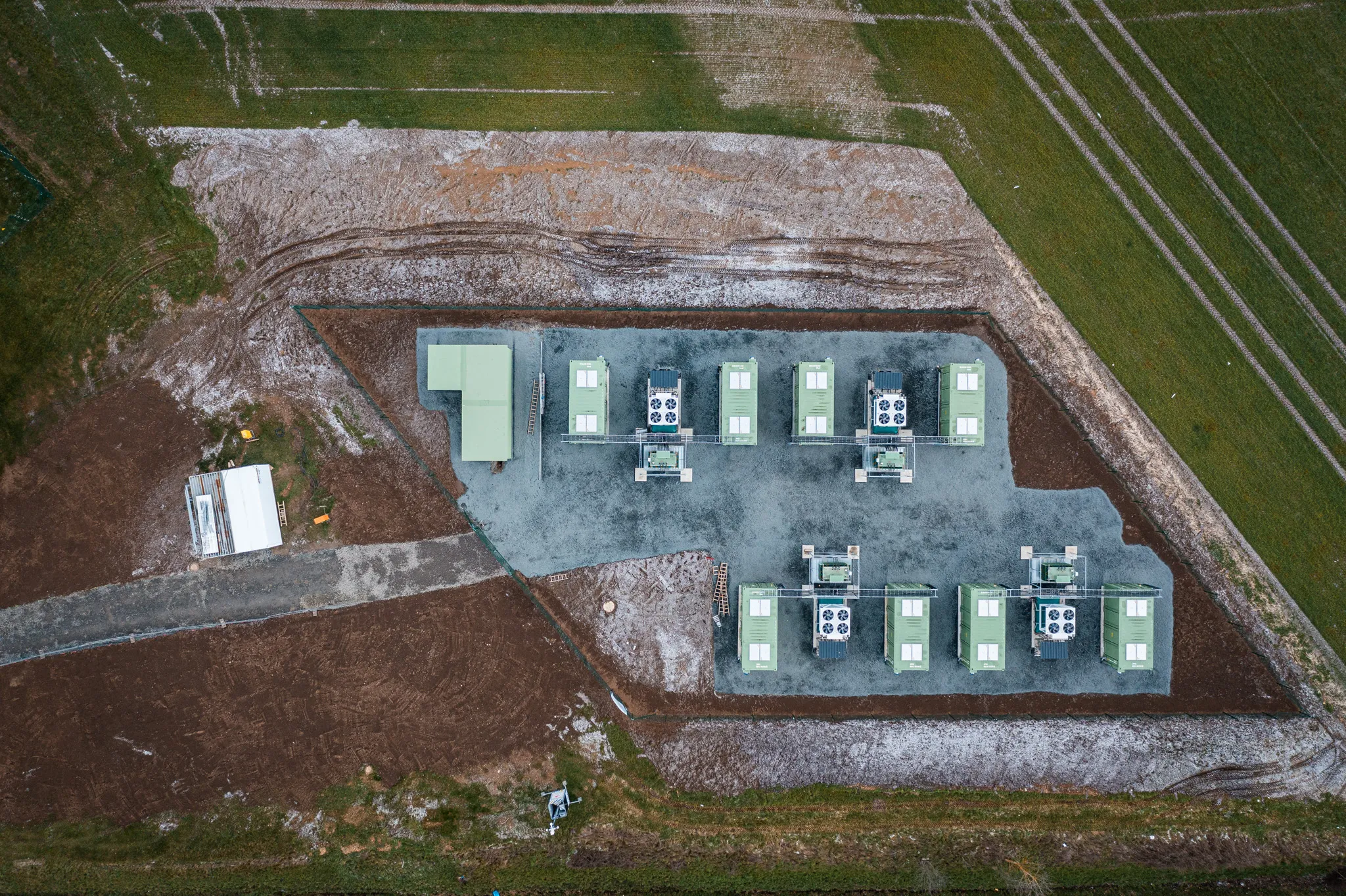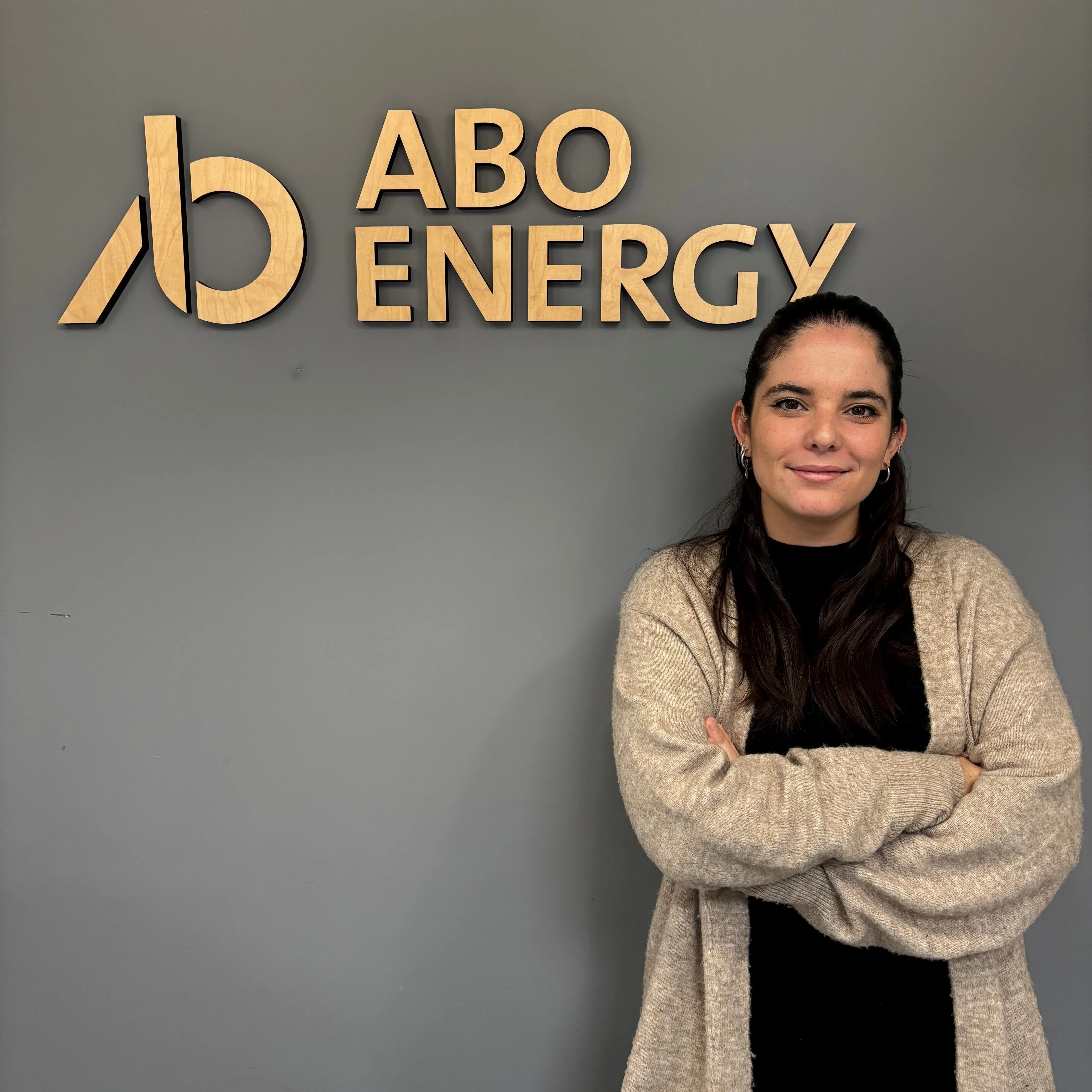Paloma is a project manager in the Hybrid Energy and Battery Storage Systems Division for the Spanish market. She holds a master's degree in electromechanical engineering and is currently pursuing an industrial PhD within ABO Energy. Her research project, developed in collaboration with the Polytechnic University of Valencia, aims to innovate within the company.
Innovating Hybrid Energy Systems: An Interview with Paloma
Read more

Paloma
What are you working on during your PhD?
The objective of the project is the development of an energy management system for renewable hybrid generation microgrids with storage, that allows its optimal operation through evolutionary optimisation algorithms based on artificial intelligence. For ABO Energy, the aim is to acquire knowledge to develop and operate hybrid plants as efficiently as possible by implementing the evolutionary algorithm, testing and validating it in a hybrid energy microsystem.
What is the purpose of the Model Predictive Control (MPC) strategy?
The Model Predictive Control (MPC) aims to reduce the hourly cost of energy and maximise the use of renewable resources with minimal computing power. Its goal is to lower the system's operational cost. It uses an optimisation algorithm, specifically one based on Particle Swarm Optimisation (PSO) (a method inspired by the social behaviour of birds), to find the cheapest control strategy while meeting system requirements.
MPC uses a digital twin, a model that mimics the real plant, to test and improve control strategies. By refining these strategies through simulations, it ensures continuous improvement. Real-time data integration makes the digital twin more accurate, leading to better optimisation. MPC is especially effective for complex systems like hybrid plants with solar, wind, and storage (batteries and hydrogen), optimising energy use, hydrogen production, and cost efficiency.
How is ABO Energy supporting your work?
The company is currently allocating resources to my research work, which I undertake on a part-time basis as part of my workload and responsibilities. Through this project, ABO Energy is promoting public-private collaboration. Additionally, the company is investing in the necessary equipment for developing this controller and covering the costs of training (such as participation in conferences and courses) and enrolment fees required for the industrial PhD.
Since September 2022, ABO Energy España has been receiving aid from the Valencian Innovation Agency (AVI) under the “Promotion of Talent” call. This includes “Innovation Agents, Incorporation of Researchers and Technologists for Innovation Projects in Companies, and Industrial PhD Students”, specifically line 3 “Industrial PhD Students (Innodocto)”. The aim of this aid is to promote the training of PhD students within companies, helping them acquire the skills needed to develop R&D projects in business environments, thereby increasing the technical and innovative capacity of the companies' workforces. This aid is granted until 2026 and covers a percentage of the aforementioned expenses.
I would also like to mention the great support received from Dr Julia Badeda, who actively guides me as the project supervisor. Additionally, the progress of the project is periodically shared within the HES Department to create synergies with other internal projects. The support and knowledge exchanges with colleagues have been very positive, helping us to join forces to achieve the final goal.
What are the potential future applications of the hybrid system being researched?
The combination of renewable technologies with storage to form a hybrid system is an innovative area, as there are currently no large-scale commercial projects of this type in Spain. Additionally, the field of control and operation of multiple systems presents many challenges that need to be addressed to optimise these installations both technically and economically. The final product will be an on-site energy management system that uses proprietary optimisation algorithms to optimise generation, demand, and storage across three different markets (electricity, gas, and mobility). The differential value of the solution lies in the real-time optimisation of these markets and its implementation on-site rather than in a commercial firm's cloud.
Understanding how hybrid systems behave, monitoring to create a database, and defining different control strategies are valuable tools for extrapolating the results obtained in real plants on a large scale.
